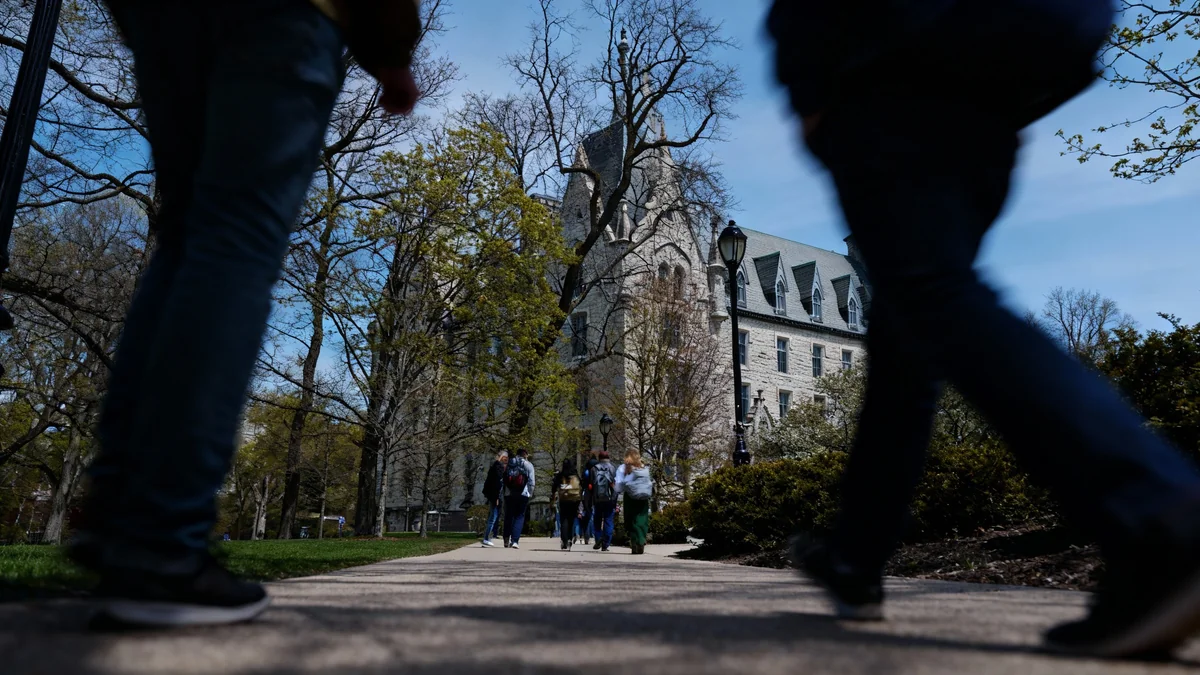Northwestern University is in the final stages of negotiating a significant agreement with the White House that would resolve a months-long conflict. The proposed deal involves the university paying a $75 million fine to the federal government in exchange for the restoration of hundreds of millions in federal funding and the closure of a federal investigation into antisemitism on campus, according to three individuals briefed on the discussions.
Key Takeaways
- Northwestern University is close to finalizing a deal with the White House to end a federal investigation.
- The proposed agreement includes a $75 million fine to be paid by the university.
- In return, hundreds of millions of dollars in federal research funding would be restored.
- The deal would also close an ongoing federal investigation into the university's handling of antisemitism.
Details of the Emerging Settlement
The terms of the agreement, which have not yet been publicly announced, represent a critical turning point for Northwestern after a period of intense scrutiny. The centerpiece of the deal is a $75 million payment from the university to the federal government. This figure would mark the second-highest amount a university has agreed to pay under similar circumstances during the current administration.
In exchange for the payment, the agreement would unlock hundreds of millions in federal research grants that have been under threat. For a major research institution like Northwestern, this funding is essential for maintaining its academic and scientific programs. The deal is also expected to formally conclude a potentially damaging investigation into the university's response to antisemitism, which has been a source of significant pressure from Washington.
By the Numbers
- $75 million: The proposed fine Northwestern University would pay.
- Hundreds of millions: The amount of federal funding expected to be restored.
- 1: The number of federal antisemitism investigations against the school to be closed by the deal.
A Pattern of Pressure on Higher Education
The situation at Northwestern is not an isolated incident. It reflects a broader strategy by the Trump administration and its allies in Congress to exert pressure on universities over various policy and cultural issues. Over the past several months, Northwestern has faced a coordinated campaign from Republicans who accused the school of failing to adequately address antisemitic incidents.
This approach has been characterized by leveraging federal funding and the threat of investigations to compel universities to negotiate settlements. President Trump has reportedly made a priority of securing large financial payments as part of these agreements. The strategy has drawn a divided response, with some viewing it as a necessary tool for accountability and others criticizing it as a form of political coercion.
A Contentious Strategy
Critics have described the administration's tactic of tying federal funding to large financial settlements as a form of extortion. They argue it forces academic institutions into difficult positions where they must choose between paying substantial fines or losing critical research funding. Supporters, however, view these actions as a legitimate cost of doing business with the federal government and a way to ensure universities adhere to federal standards and policies.
The Investigation and Its Impact
The federal investigation into antisemitism at Northwestern created a climate of uncertainty for the university's administration, faculty, and students. Such inquiries can be lengthy, costly, and disruptive to the academic environment. They often involve extensive document requests, interviews with staff and students, and a review of institutional policies.
The prospect of a prolonged investigation, coupled with the withholding of federal funds, placed considerable strain on the university's operations. For an institution that relies heavily on federal support for its research endeavors, the financial implications were substantial. The pressure campaign effectively created a powerful incentive for Northwestern to seek a resolution, even one involving a significant financial penalty.
Reaching a settlement allows the university to move forward, restore its financial stability regarding federal grants, and shift its focus back to its primary mission of education and research. While the fine is substantial, the certainty provided by the deal is seen by some as a necessary step to end the protracted conflict with the administration.
What Happens Next
While sources indicate the deal is nearing finalization, neither Northwestern University nor the White House has issued an official statement. The final terms will need to be formally agreed upon and signed by both parties. Once the agreement is public, it will likely face scrutiny from various stakeholders, including faculty, student groups, alumni, and civil liberties organizations.
The resolution of Northwestern's case will be closely watched by other universities that may be facing similar pressure. The outcome could set a precedent for how such disputes between the federal government and higher education institutions are handled in the future. The focus will now turn to how Northwestern implements any changes required under the settlement and works to rebuild trust within its community following this challenging period.





